Two university students -- Aisha and Yu Estella Kirameki, better known as YuChan -- enjoy talking with fans via livestream on YouTube where they play games or tell stories. Their activities are similar to many YouTubers, however, Aisha and YuChan are not human. They are computer-generated characters who have their own individual YouTube channels -- Aisha Channel has 303,000 subscribers and the YuChan Channel 115,000 subscribers.
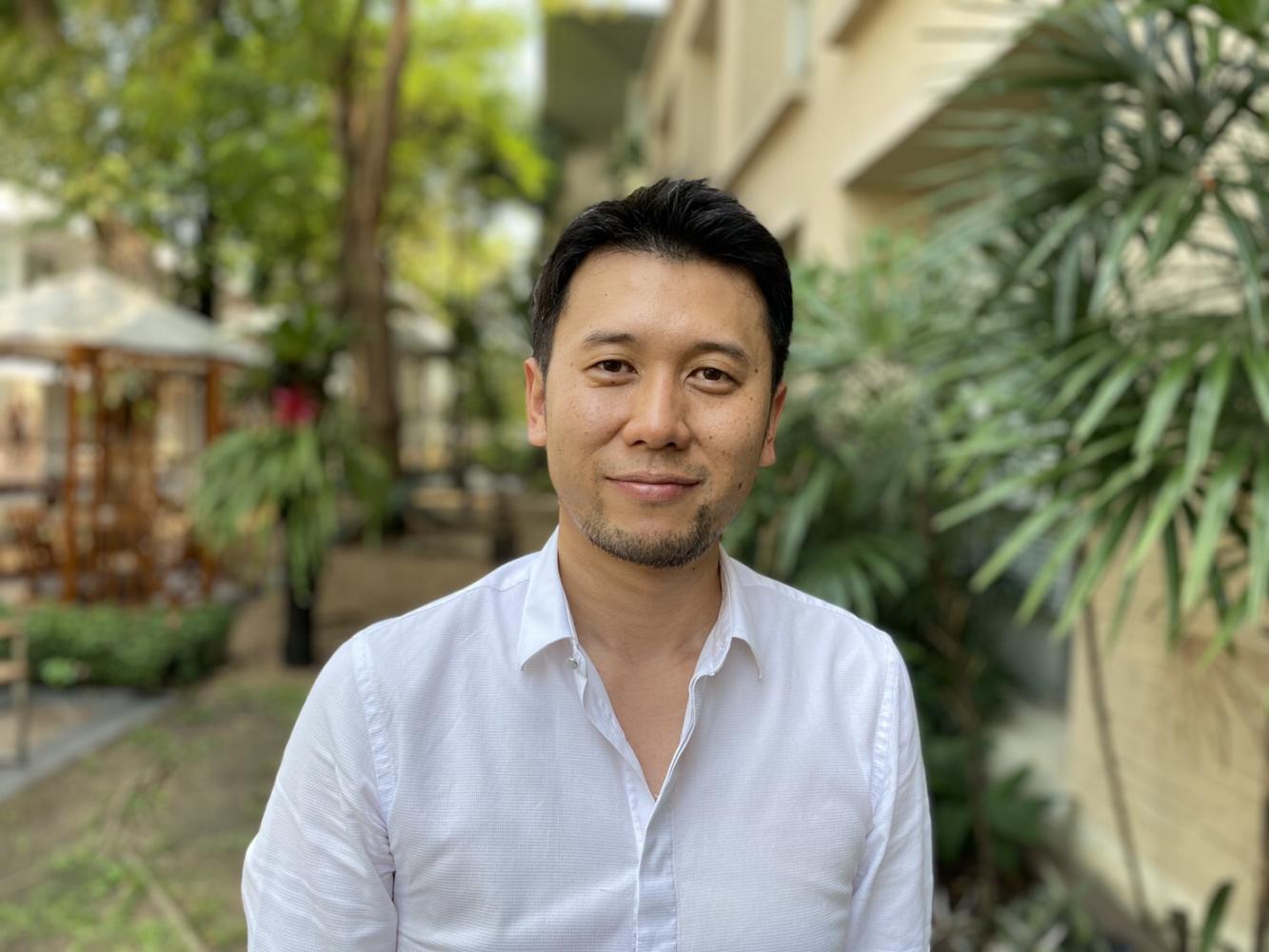
Taro Iwasaki, managing director at KadokawaAmarin. (Photo courtesy of Kadokawa Amarin)
In today's digital age, many YouTubers and influencers attract a large number of internet users and advertisers. This advertising market, which is dominated by real people, now has to share space with virtual YouTubers -- known as VTubers -- and virtual idols. Originating in Japan, well-known VTubers are widely used as presenters in commercials and various events. Launched in 2016, Kizuna AI, the most famous Japanese VTuber, has almost 3 million subscribers on YouTube and appeared in an advertisement for Nissin cup noodle last year. Taro Iwasaki, managing director at Kadokawa Amarin, which publishes Japanese manga, novels and games and the creator of YuChan Channel for Thai audiences, said the VTubers market in Japan is very competitive.
"Back in 2016, people were excited with Kizuna AI, which could act like a YouTuber. Viewers can talk and interact with this animated character in real time. I think Kizuna AI was created for fun and its makers did not know that she was going to be such a big hit. The VTubers market has become extremely competitive. There are about 10,000 VTubers in the market but very few are making money," said Iwasaki.
Although the market for VTubers is still in its nascent stage in Thailand, it has expanded quickly during the Covid-19 pandemic. Nakharin Sinsiri, chief product officer of Guardian Angel AI and Phriezt Sumanas, CEO of Polygon Official -- the people behind Aisha Channel -- said Aisha has been hired to work many kinds of jobs.
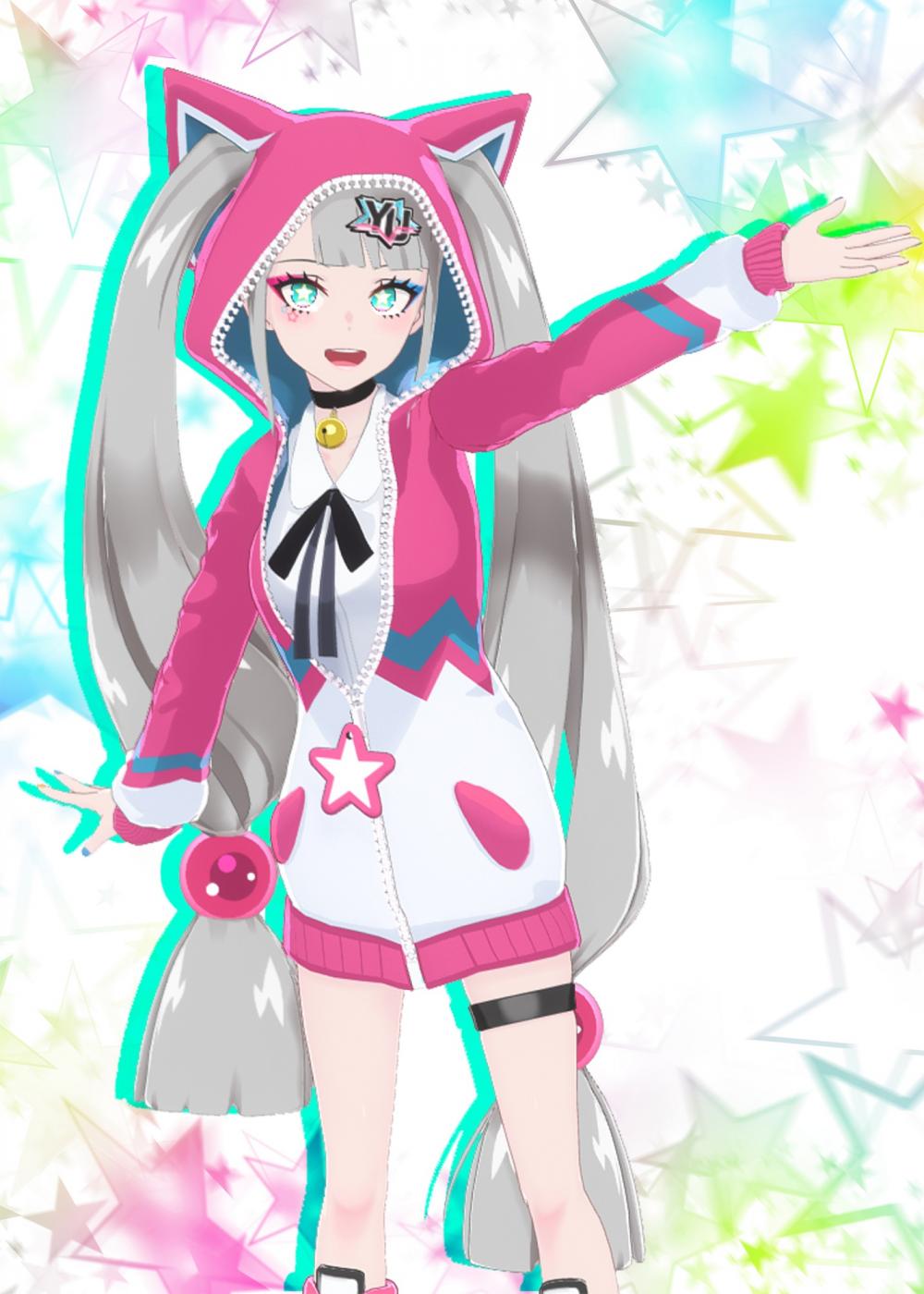
YuChan, a virtual YouTuber, or VTuber.
"The pandemic has been a great time to create online content and the number of subscribers and views has increased. As a result, Aisha has been hired to promote and review several games and appear in commercials and events," said Nakharin.
Some marketers believe that since VTubers are controllable, they will not damage the image of the products they advertise. Phriezt agrees with this and also believes that Vtubing is an opportunity for talented people.
"There was no platform for these talented entertainers to show off their abilities. Currently, they can express themselves via their channels as VTubers and are able to make a living out of it. Some people want to separate their private lives from their professional lives. As VTubers, people do not recognise them so they can go out and still have their personal space," said Phriezt.
Iwasaki said that since there is a human factor behind VTubers, there is always a chance for human error.
"In Japan, there were VTubers who spoke about a sensitive issue during livestreams that caused controversy and got them banned. VTubers can lead to these issues as long as there are humans behind them," said Iwasaki.
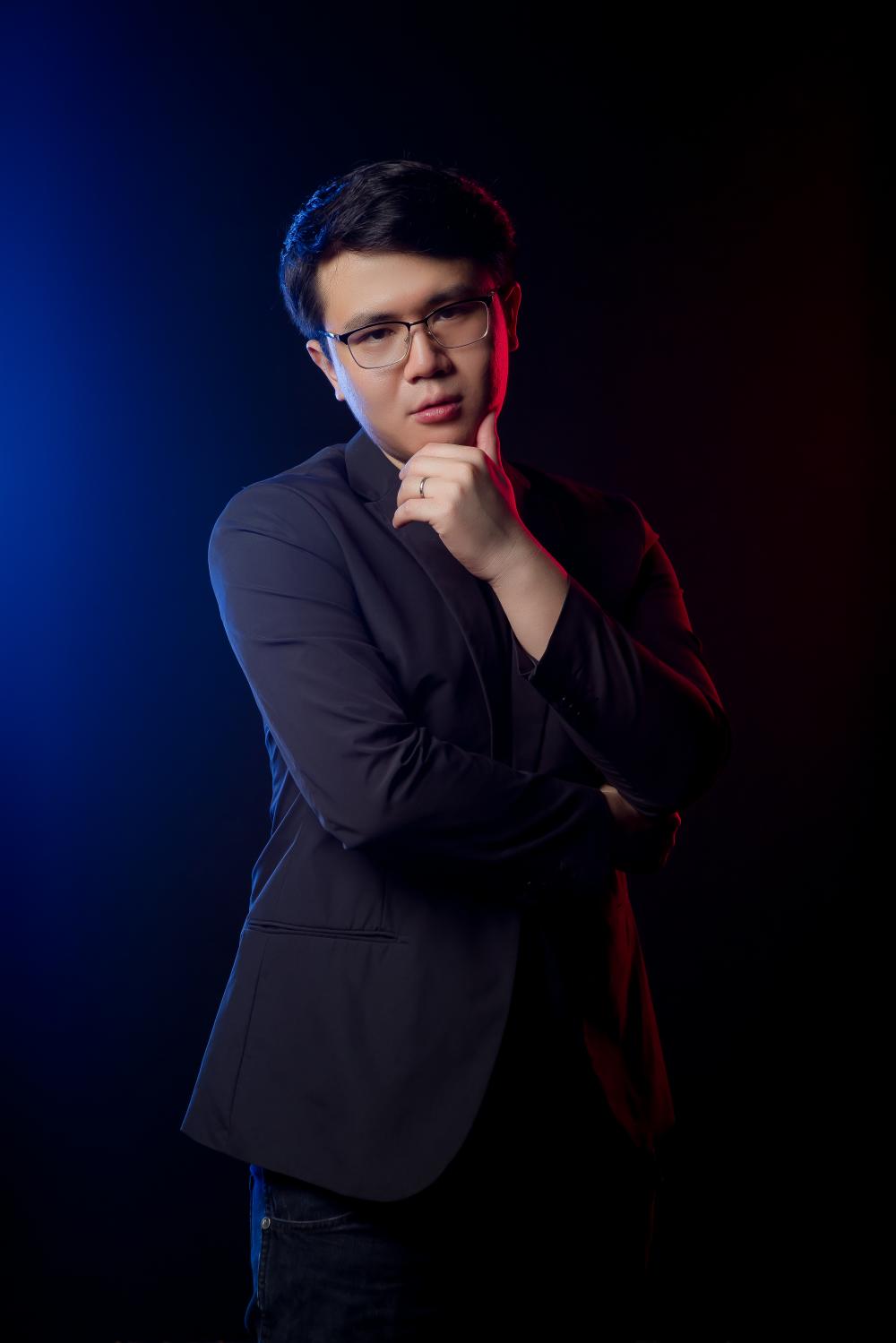
Nakharin Sinsiri, chief product officer of Guardian Angel AI. Photo courtesy of Guardian Angel AI
While Aisha debuted on YouTube in July, 2019, YuChan's first video was posted in March last year. The characters are both 18 years old and like to play games, however, they were created for different objectives. Aisha was created to become a virtual influencer but YuChan was created to be a customer touchpoint.
"I thought Aisha would be a fun project. Besides having real people as influencers, we thought it would be interesting to add a new category such as a virtual influencer in the market. It was difficult in the beginning because people did not know what a virtual influencer or idol was. After we explored the market, we found many investors were interested in VTubers. They are mostly from the digital and application industries, advertising agencies and restaurants," said Nakharin.
"Kadokawa Amarin is a major publisher and distributor of Japanese content such as manga, novels and merchandises. We use a virtual idol like YuChan to create an additional touchpoint for potential customers who are interested in Japanese content by watching VTubers. They eventually may want to read the comic or manga or buy the merchandise," said Iwasaki.
An actress's talents and charms are the key to attracting viewers. While Aisha has a great sense of humour and can sing beautifully, YuChan is easy-going and good at playing games. Iwasaki said it was difficult to find a voice actress for YuChan.

Phriezt Sumanas, CEO of Polygon Official. Photo courtesy of Polygon Official
"In Japan, we have many professional voice actors who can make a living from this career. There are also schools to educate voice actors and actresses to work in TV or animation. In Thailand, there are several voice actors and actresses, but most of them are not full-time voice actors. We had to train this actress for a few months before she was able to reach an acceptable level and become YuChan," said Iwasaki.
As part of the audition process for Aisha, judges at Polygon Official were only allowed to hear the actresses but not see them. This was done so that judges could focus on the talent and not appearances.
"I chose this actress the first day she came to the audition. She can sing and is a great entertainer. She has potential to grow much further and become a content creator," said Nakharin.
As a subsidiary of a Japanese corporation, Iwasaki intends to reach more people in order to create awareness of Japanese content. However, executives at Polygon Official decided to expand their business by launching five more female virtual influencers -- Lapine, Zona, Hoku, Luxia and Lucene -- on YouTube. They also held an audition for male virtual influencers but haven't revealed a launch date yet. Their future goal is to organise a concert of VTubers.

"When I was young, I saw Hatsune Miku, a Japanese Vocaloid software voicebank perform at a hologram concert. I thought it was cool and thought about organising this type of concert in Thailand as a music festival in which local and international VTubers perform onstage in a hall. Previously, we held an online concert that thousands of people attended. However, we want to create a real-time event. I think it can happen in the next five years," said Nakharin.
"Organising a concert requires collaboration with people in different areas such as lighting, sound and scriptwriting. I believe Thai people have the potential to achieve it. In the meantime, it is important to promote and to make people understand VTubers. We hope someday everyone will recognise VTubers as something normal that is part of their routine lives," said Phriezt.
Even though VTubers and virtual influencers share the market with people, these executives agree that VTubers will not replace real people. Phriezt said VTubers add more variety to the market.
"It is unlikely that animations will replace motion picture movies. A VTuber is one of the numerous ways to create, express and present content on YouTube or other video sharing platforms. VTubers will not replace YouTubers in the future," Iwasaki said.
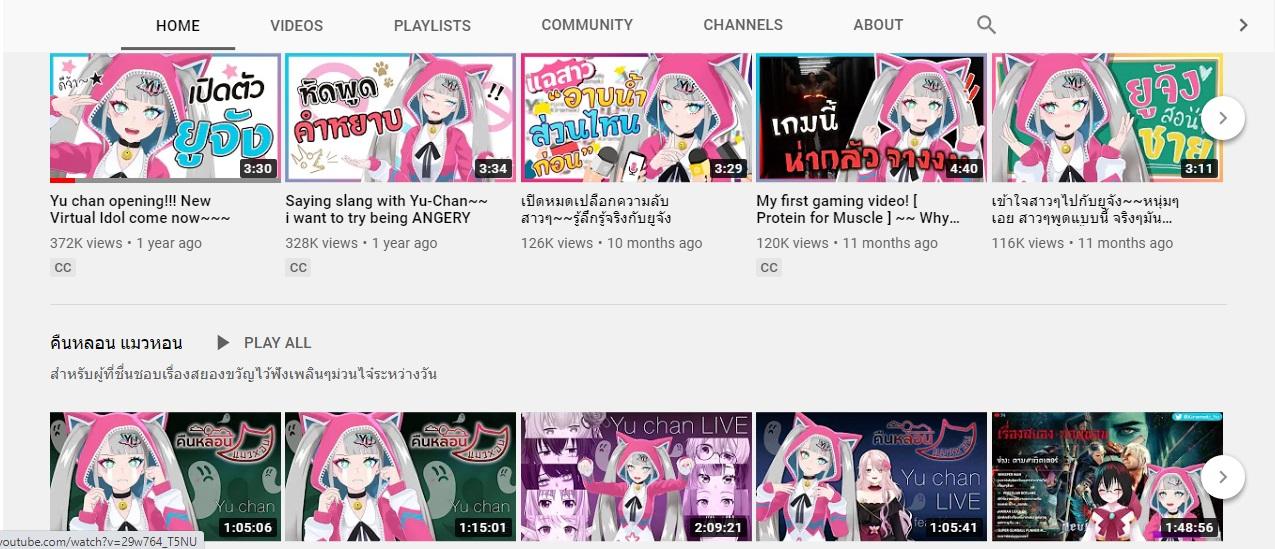
YuChan Channel. YuChan Channel

Aisha Channel. Aisha Channel
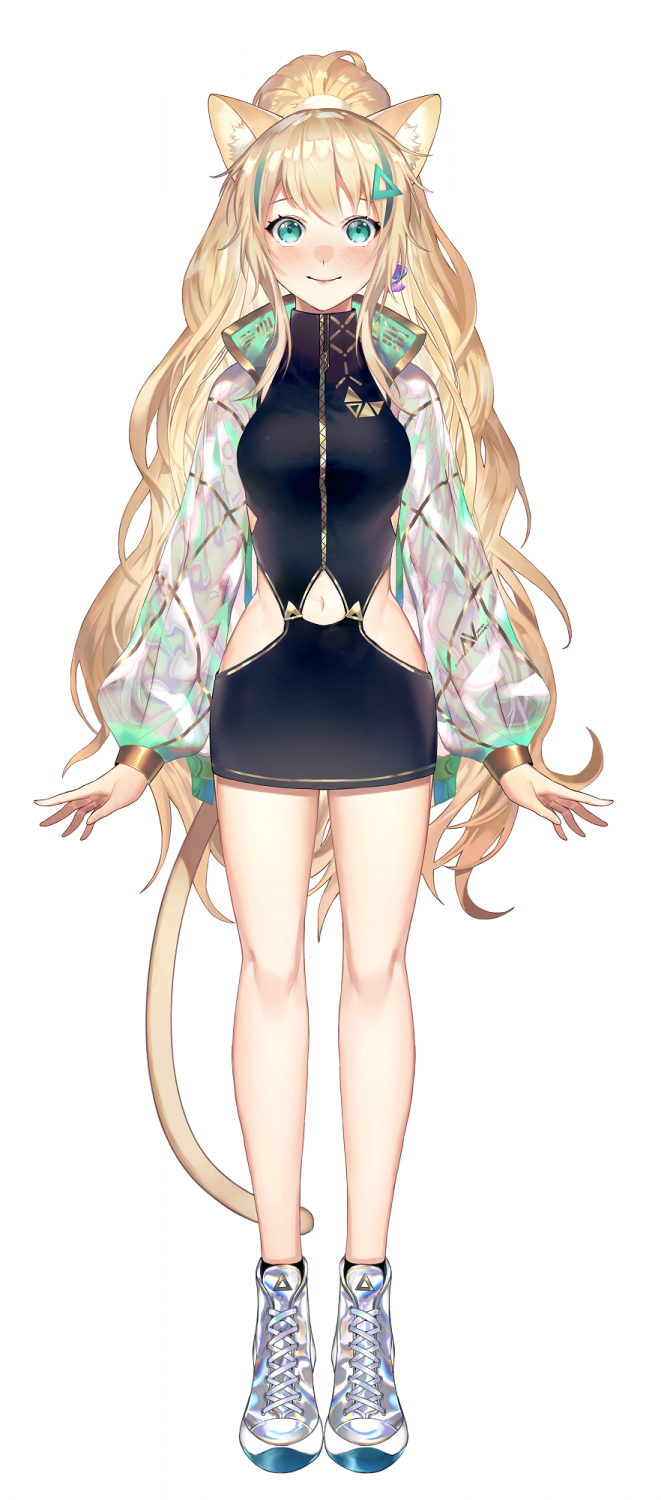
Aisha. Photos courtesy of Polygon Official
